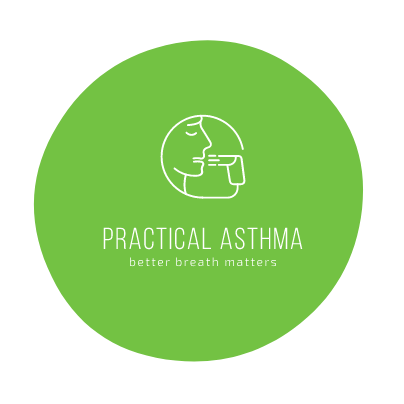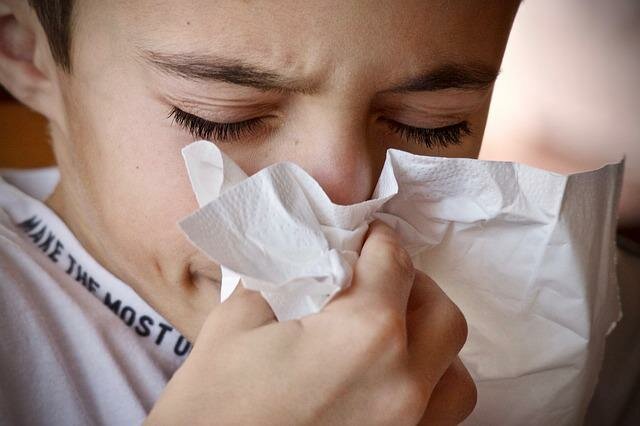Are you at increased risk of asthma? How do you recognise the symptoms of asthma?
Do you sometimes wake up at night coughing? Do you find it hard to breathe in and out? Do you hear wheezing or buzzing in your breathing? These may be the first symptoms of asthma.
If you are allergic, your allergy may have developed into allergic asthma. This disease is characterised by inflammation of the lower airways. In addition to your allergic rhinitis, you may therefore experience asthma attacks, which become more severe and more frequent over time. This makes it all the more important to diagnose and treat your allergy as early as possible and to recognise the symptoms of asthma at an early stage.
What is (allergic) asthma?
Asthma is a chronic inflammation of the lower airways which, during an acute asthma attack, causes contraction of the bronchial muscles, swelling of the mucous membrane and increased mucus production. The central symptom is shortness of breath, which occurs during attacks. If you have allergic asthma, your airways are irritated by the allergens involved. Over time, the inflammation can become almost autonomous and you suddenly react to other stimuli, such as cold air or tobacco smoke.
In Germany, a total of seven to ten percent of all children and about five percent of adults are affected by bronchial asthma.
There are indications that your allergic rhinitis may be developing into asthma:
You have the following asthma symptoms, always related to exposure to allergens (e.g. pollen in season, house dust mites)
- wheezing when breathing
- shortness of breath after physical exertion
- Dyspnoea even at rest
Waking up at night with breathing difficulties or coughing fits
What are the links between allergies and asthma?
There is a link between your upper and lower airways. Inflammation caused by an allergic reaction can therefore travel from your nose to your lungs and trigger asthma.
An inflamed airway lining permanently irritated by allergens can also react with asthma symptoms following air pollution or infections such as a cold.
The main causes of asthma are allergies
Only by having your allergy treated can you stop other allergies from developing. However, if your allergy is not treated sufficiently, it can continue to develop. In addition to hay fever, allergic asthma can develop. Experts refer to this as a “stage change”. 33% of pollen allergy sufferers are affected by this development of the disease.
Ask your doctor for advice
Are you also one of those people who accept their allergy and are content to live with it? If so, you probably don’t know the long-term consequences for your airways. Do yourself a favour and don’t wait until you can no longer cope with your allergy symptoms to seek help. Every day that you don’t get your allergy treated, your risk of developing allergic asthma increases.
Don’t let your allergy control you. Make an appointment with your doctor to get a concrete diagnosis and discuss your treatment options.
How is allergic asthma diagnosed?
Allergic asthma is diagnosed by taking a history of other allergic symptoms under exposure to the allergen in question. If not already done, a prick test is performed to identify the allergen responsible. In addition to the physical examination, a lung function test and, if necessary, a bronchial provocation test are then performed. In addition to the history, X-rays and lung function tests can also provide information on asthma.
Allergy treatment = asthma prevention
There are various ways of having your or your child’s allergy treated. Doctors often advise their patients to avoid the substance that triggers the allergy, which is of course not always entirely possible. Also, medicines to relieve the symptoms of the allergy may suppress the acute symptoms, but you may need to take more and more medicines to control your symptoms.
Another option for treating your allergy is hyposensitization (also called specific immunotherapy). Unlike antihistamines, which relieve symptoms, this one can treat the cause of your allergy. This way, you gradually develop a tolerance to the allergen that triggers your allergy.
Another benefit of hyposensitization is that specific immunotherapy can also prevent the progression of your allergic rhinitis and reduce the risk of asthma.
Want to know if desensitization might be the right treatment for you? If so, it’s best to make an appointment now and ask your doctor for advice.

